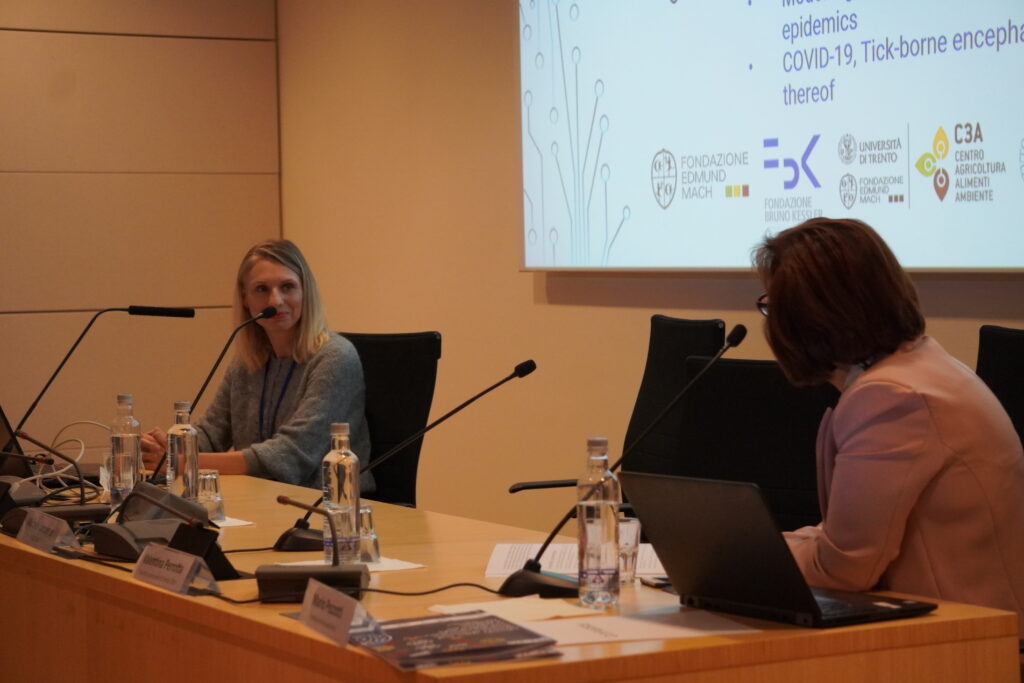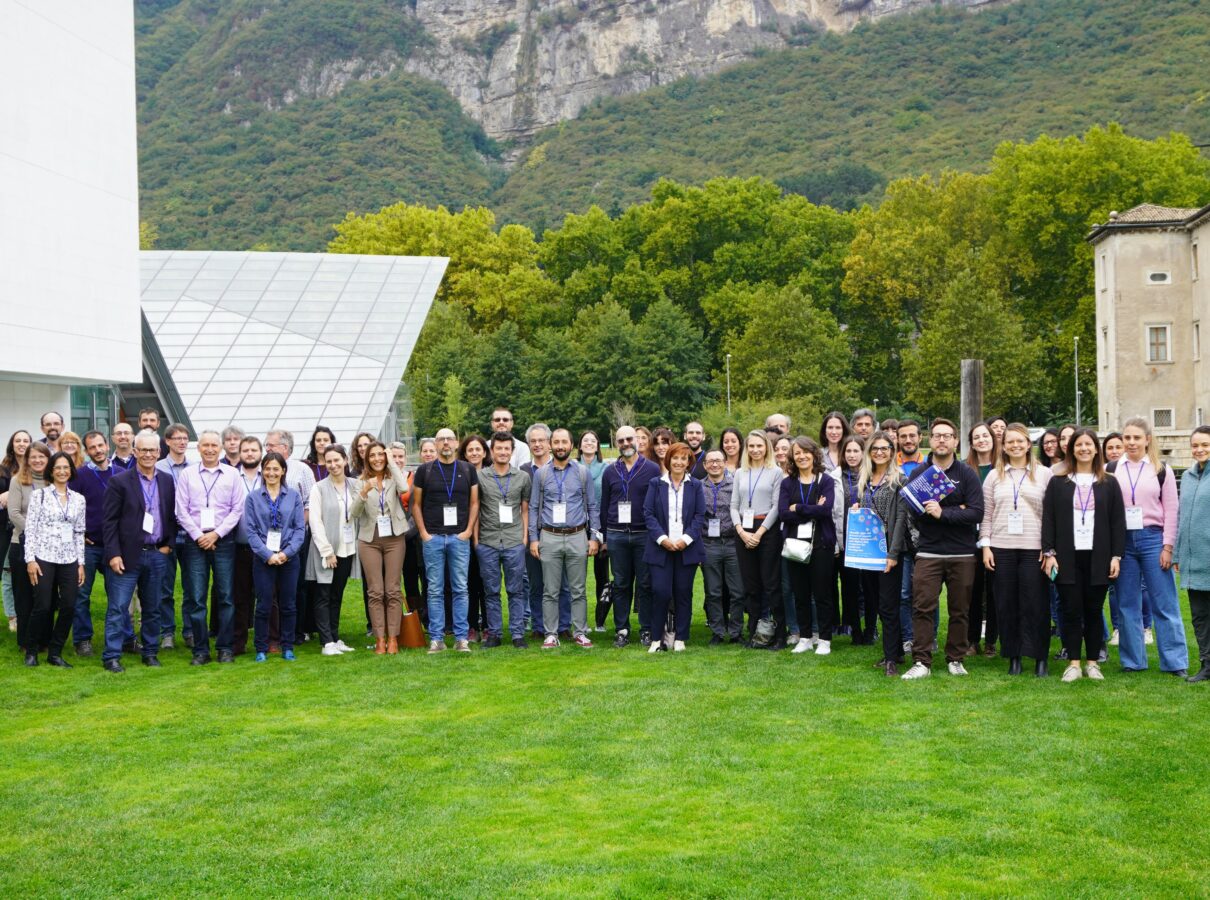The MOOD workshop organized by the Edmund Mach Foundation in collaboration with Fondazione Bruno Kessler welcomed about two hundred researchers and experts from 30 countries –both virtually and in person– to discuss the analysis, monitoring and evaluation of emerging infectious diseases in Europe in the suggestive ‘Museo delle Scienze (MUSE)’ in Trento on September 28-29, 2022.
What are the risks associated with the spread of new and re-emerging pathogens in Europe? Which factors lead to zoonosis outbreaks? What tools and approaches do we have to predict new pandemics and monitor their spreading?
These challenges and many solution pathways were discussed at the workshop ‘Identify signs and drivers of zoonotic diseases emergence and digital data resources for Epidemic Intelligence’ by leading experts in disease ecology, virology and modellers such as Prof. Peter Hudson (Penn State University), Dr Marion Koopmans (Erasmus University and VEO project), Prof. Emily Gurley (Bloomberg School of Public Health, Johns Hopkins University), Dr Raina Plowright (Montana State University), Dr Jan Semenza (ECDC), and Dr Donal Bisanzio (RTI International) to mention just a few.
Throughout the two days of the hybrid workshop, about 20 short talks illustrated the complexity and advancements of One Health research around TBE, Highly-Pathogenic Avian Influenza, West Nile Virus, Leptospirosis, and COVID-19 including the works of MOOD partners such as Vittoria Colizza (INSERM), Mortiz Kraemer (Oxford University), Francesca Dagostin (FEM) and Mathieu Roche (INRAE).
Emergence is an ecological process and our response should be an ecological response
–Prof. Peter Hudson, Wildlife Disease Ecologist and Willaman Professor of Biology at Penn State
The workshop was promoted within the MOOD project, in which the FEM coordinates a specific area relating to the intelligence of diseases in partnership with FBK, as part of the JRU Epilab, operating in the quantitative epidemiology of infectious diseases, and the Istituto Superiore di Sanitá (ISS).
A diverse audience attended the hybrid sessions. Experts and scientists from research institutions and public health agencies were part of this gathering, as well as public and international veterinarians to discuss practical and methodological support for existing disease monitoring platforms combining human health information with climatic, wildlife and migratory factors and land-use data –at the core of the OneHealth approach.
The opening saw the interventions of Prof. Mario Pezzotti, Manager of the Research Center and FEM innovations, Valentina Perrotta, Deputy Director of the research and innovation system office from the Autonomous Province of Trento, Michele Lanzinger, Director of MUSE, Francesco Pizzo, Representative of the simple surveillance structure and water control of the APSS –highlighting the collaborations between health research and applications at national and local levels in place within the MOOD project.
The scientific programme was introduced by Annapaola Rizzoli, head of the Applied Ecology Unit of the FEM Research and Innovation Center and coordinator of the MOOD Work Package on diseases intelligence, together with Elena Arsevska, Epidemiologist at CIRAD and MOOD project coordinator, who introduced the advancements of MOOD Epidemic Intelligence platform.

Presentation of the MOOD activities and upcoming platform
Under the OneHealth umbrella, the MOOD project is developing an innovative digital surveillance platform supporting analysts, public and veterinary health agencies and decision-makers to define in which conditions the probability of infectious disease emergence and spread is high, and timely identify events with such a high probability, therefore, triggering more timely and targeted surveillance, prevention and interventions actions since the beginning of the emergence phase.
Over the past 2 years, MOOD researchers and modellers have defined a selected subset of “core” covariates for seven model pathogens and for their signals associated with their emerging and spreading capacity, which will provide the basis for the establishment of an integrated surveillance system for ‘drivers’ data, along with the complete listing of related digital data sources.
The first two components of the platform providing ‘Data and Covariate Access’ and ‘Event-based Surveillance Data’ will be available for user feedback and demonstrations at the upcoming MOOD Xmas Event in December 2022.
Additionally, MOOD coordinator Elena Arsevska announced that “the MOOD Epi-Platform International Non-Profit Association (INPA) will be created in order to achieve long-term sustainability and societal impact but also to perpetuate the work.”
Learn more about MOOD’s Epidemic Intelligence platform and risk surveillance tools.
Note of the author: this piece was based on Fondazione Edmund Mach Press Release


